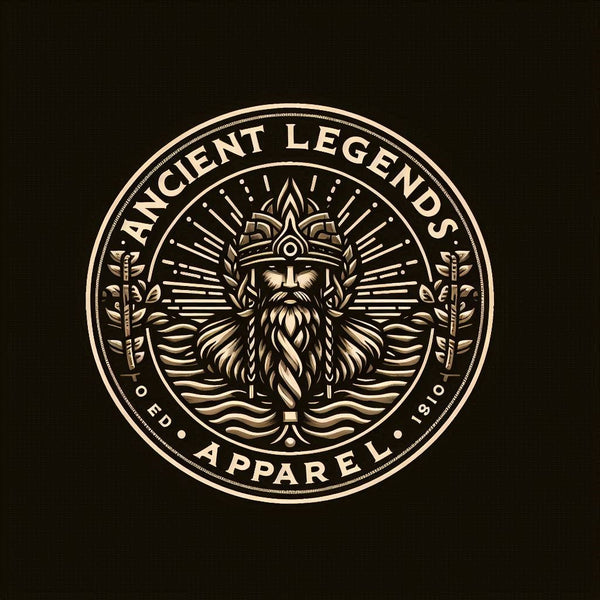Top 5 Gods or Goddesses of Gladiators of Rome
Karl FShare
INTRODUCTION
If you were to step back into the shimmering world of marble and dust, of blood and iron in ancient Rome, you would find a diverse panoply of deities worshipped by the gladiators. Some offered hope of providence, while others promised vengeance, strength, or survival. They were etchings on weaponry, whispered prayers in the dawn gloam, and haunting visions. Our journey into the past unfolds their lore and the profound mysteries cloaked within their context, narrative, symbolism, and influence across cultures.
ORIGIN AND CULTURAL CONTEXT
Religion played an integral role in Rome, patchworked into every aspect of daily life, even in the brutal sands of the amphitheater. The gods and goddesses held within their divine embrace the formidable gladiators, arming them with mystical protection against an untimely death.
Mars, the Roman God of War and Agriculture, born of Juno's fury and a magical flower, reigned supreme. The gladiators viewed him as their ultimate patron, the giver of valor, a fervent hope to return alive from the battle's chaos. Bellona, a lesser-known but no less influential deity, was Mars' sister and the goddess of war, destruction, and devastation. Gladiators invoked Bellona to inject an indomitable spirit and brutal strength into their very being.
In a more sanguine vein, gladiators prayed to Fortuna, the Roman goddess of luck, blessings, and fate. She was the fickle mistress of chance, capable of tipping the scales of fate towards victory or death. Mercury, the fleet-footed messenger of the gods, was another deity dear to the gladiators. As God of Boundaries, Mercury mediated between life and death, translating human tributes to the divine realm. Lastly, gladiators often devoted themselves to Nemesis, the Greek goddess of retribution. She provided a moral compass, avenging those who dared break the sacred laws of combat and excess pride.
THE LEGEND OR STORY
Every deity worshiped by the gladiators came with their own rich tapestry of legends and stories. Mars, for instance, was conceived without a father, an act of defiance by his mother, Juno. This unusual birth, symbolizing unassailable strength, resonated with gladiators who fought against overwhelming odds. Bellona, his sister, was often depicted in an ominous chariot, wielding weapons of devastation, symbolizing the cruel dance of death staged in the arena.
Fortuna, often depicted with the Wheel of Fortune, symbolized luck's capricious nature. She held the Cornucopia, the horn of plenty, signifying the rewards victorious gladiators could earn. Mercury bore the Caduceus, a staff entwined with snakes, emblematic of his role as a negotiator between divine and mortal realms. Through Mercury, gladiators hoped their pleas reached the gods and tilted the odds in their favor. Nemesis, armed with a whip and a wheel, signified balance, punishing those who dared to upset the equilibrium.
INTERPRETATIONS AND SYMBOLISM
The gods and goddesses invoked by the gladiators were not mere figments of worship. They symbolized a range of human impulses, fears, and aspirations projected onto divine forms. Mars and Bellona embodied human conflict's dual aspects: Mars, strength and courage; Bellona, ferocity, and havoc. Together, they constituted the brutal elements of the gladiatorial combat.
Fortuna embodied uncertainty and changing fortunes, her caprice mirroring the uncertain fate of gladiators. Mercury symbolized communication and transitions, providing a link to the divine and a chance of survival. Nemesis was justice incarnate, a measure against hubris, a concept all gladiators needed to balance whilst in the limelight lest they face a fateful fall.
COMPARISONS IN OTHER CULTURES
The veneration of these deities is visible not only in Roman worship but also in different cultural contexts. Mars and Bellona bear a striking resemblance to the Greek deities, Ares, and Enyo, reflecting the shared cultural beliefs in war's dual nature. Norse cultures had similar deities, with Thor and Sif echoing the warrior aspect.
Fortuna correlates with the Greek goddess Tyche, both personifying luck and fortune. Mercury draws parallels with Hermes in Greek mythology, both known for their cunning and quick-witted nature. Nemesis also finds parallels as Adrasteia in Greek legends, both maintaining the balance of justice and retribution.
MODERN REFERENCES AND POP CULTURE
Modern culture often honors these ancient deities in various forms. Military forces worldwide invoke Mars as a symbol of invincibility and honor. Video games such as "Smite" and "Immortal Rome" have characters embodying the essence of Bellona, her destructive spirit encapsulated in pixel forms.
Fortuna's spinning wheel is used metaphorically in many books and movies to emphasize the unpredictable nature of life. Mercury, with his fast-footed attribute, has been personified in various novels, including Rick Riordan's "Percy Jackson" series. Nemesis, as a figure of revenge, often appears in modern literature and film, a manifestation of divine retribution against hubris-ridden characters.
LEGACY AND LASTING MYSTERIES
The gods and goddesses of Rome's gladiators continue to be an intriguing subject for history lovers, mythologists, and cultural enthusiasts. Their legends, interpreted across contexts and cultures, offer insights into the fears, hopes, and aspirations of ancient societies.
Their narratives continue to raise questions. What does their worship tell us about Roman morality and ethics? How did their narratives shape the culture of combat and competition in Rome? How deeply were gladiators influenced by these deities, and how did it affect their performance in the arena?
While history continues to explore these mysteries, one thing is certain. These eternal deities, emerging from the shadows of the Roman colosseum, will continue to exert their influence across eons, shaping our understanding of a world long past but never forgotten.
